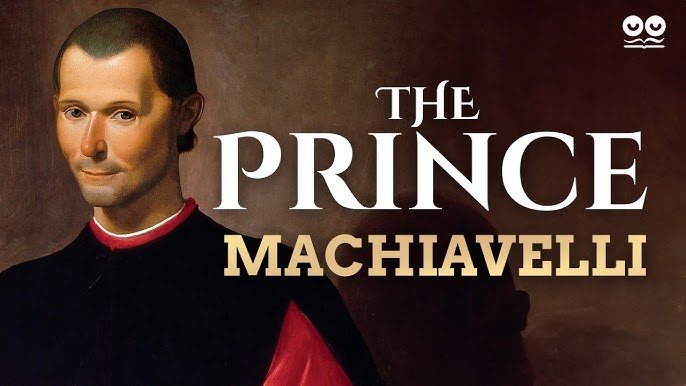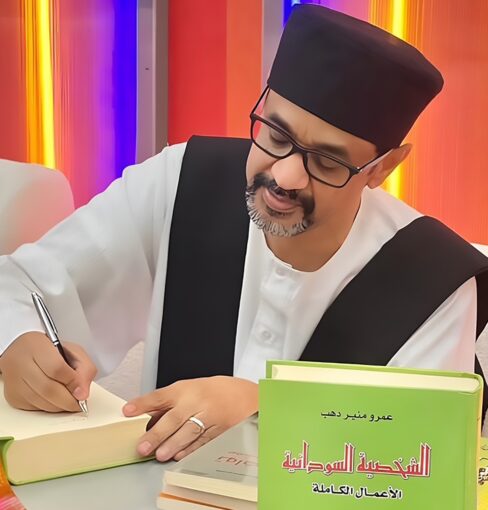Avoid misusing Machiavelli

By Sudanese-born author Amr Muneer Dahab
Challenging principles at work—just as in life—is no easy matter, and that debate in any organization is never about written work ethics, but rather about their application.
Machiavelli comes to this point, specifically in his book “The Prince,” as if granting his reader an authenticated license to transgress principles. In fact, anyone who delights in reading Machiavelli’s “Prince” and then proceeds, with a clear conscience, to abuse others has likely committed such transgressions before, but has merely concealed his Machiavellianism out of fear of the prevailing moral codes of their society. It is difficult to find any society anywhere in the world that openly and publicly endorses the idea that “the end justifies the means.”
The most striking aspect of Machiavelli’s ideas is their honesty and boldness in exposing the instincts of the human soul. But is that all there is to it: knowing our innate instincts accurately and responding to them? Understanding our instincts and tendencies is undoubtedly important, and the courage required to discover and acknowledge them is admirable. However, basing our responses solely on what serves these instincts and tendencies seems unacceptable, not only morally but practically as well. Indulging in selfishness/egoism undermines the community spirit upon which societies of all stripes and backgrounds are built.
Machiavelli was not naive, of course. He did not recommend that everyone think of themselves and transcend others. Rather, he offered his valuable advice to princes only to consolidate the foundations of a strong state, as he saw it. However, many have embraced his ideas and begun to implement their “evil” spirit without being responsible for governing a small province, or even without any administrative authority of any kind.
If Machiavelli’s boldness in confronting the reality of the human psyche is admirable, his evasiveness is not, at least for me. It entails a degree of cowardice that is equal in magnitude to his audacity and opposite in direction, such that the resultant admiration is zero at best. However, in the interest of objectivity, rather than in fairness to a man who seemed in no way concerned with fairness, let us remember that Machiavelli did not ask anyone to admire him. He merely sought to draw a roadmap to victory for the ruling class. Some, however, have taken a peek at that roadmap and adopted it for themselves in this and that context of practical life.
The debate over the validity of principles and ethics is, of course, not limited to work but extends to all of life. Indeed, the test of existence almost entirely revolves around this debate.
If someone’s evil-commanding soul is overwhelming, they likely do not need Machiavelli to soothe their conscience. The problem, then, is not that a noble end justifies a lowly means; the end itself may be lowly, unless we consider personal gain synonymous with nobility. Machiavelli’s devotees are likely not so much obsessed with the meaning of nobility as with the idea of victory and acquisition. This makes the following statement more accurate in describing their motivations: The gains justify the means.
But even in light of this last statement, it is wise to deliberate. Some people may become accustomed to violating principles even when there is no need to do so. This is similar to someone who enjoys secretly jumping out of a building window even though the door is open and no one is preventing them from entering.
The addiction to taking devious ways leads to consequences that could often be avoided by pausing and asking: Is there really a need to detour between two points if a straight line is safe and passable?
_____________
 Amr Muneer Dahab is a Sudanese-born passionate essayist, literary critic and poet. An electrical engineer living in the United Arabe Emirates, he juggles his professional career and writing, which has birthed so far 45 books. He is a columnist in several Arabic newspapers, and he hosts a weekly piece of Wisdom Literature, “Too Good and True, You are Always Good to Go,” on the website of The African magazine.
Amr Muneer Dahab is a Sudanese-born passionate essayist, literary critic and poet. An electrical engineer living in the United Arabe Emirates, he juggles his professional career and writing, which has birthed so far 45 books. He is a columnist in several Arabic newspapers, and he hosts a weekly piece of Wisdom Literature, “Too Good and True, You are Always Good to Go,” on the website of The African magazine.
Soumanou Salifou (administrator)
Soumanou is the Founder, Publisher, and CEO of The African Maganize, which is available both in print and online. Pick up a copy today!

